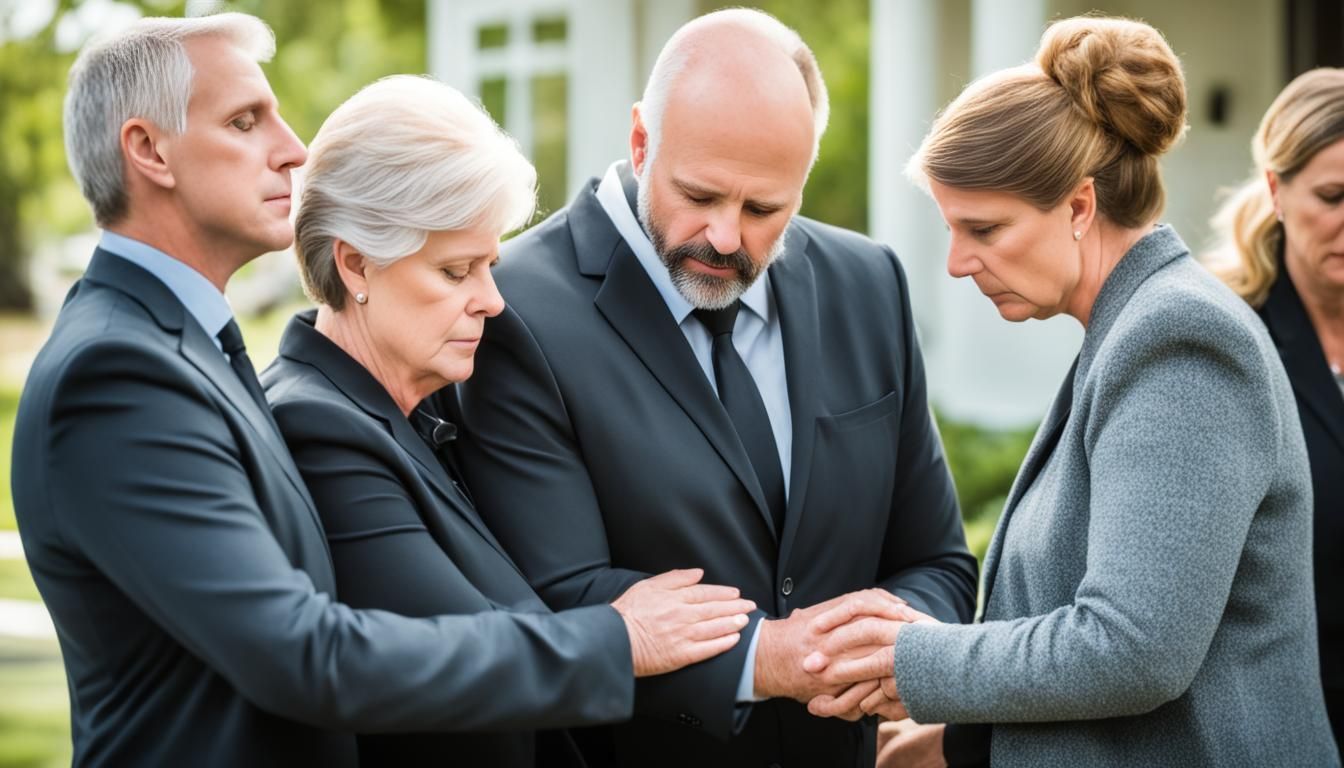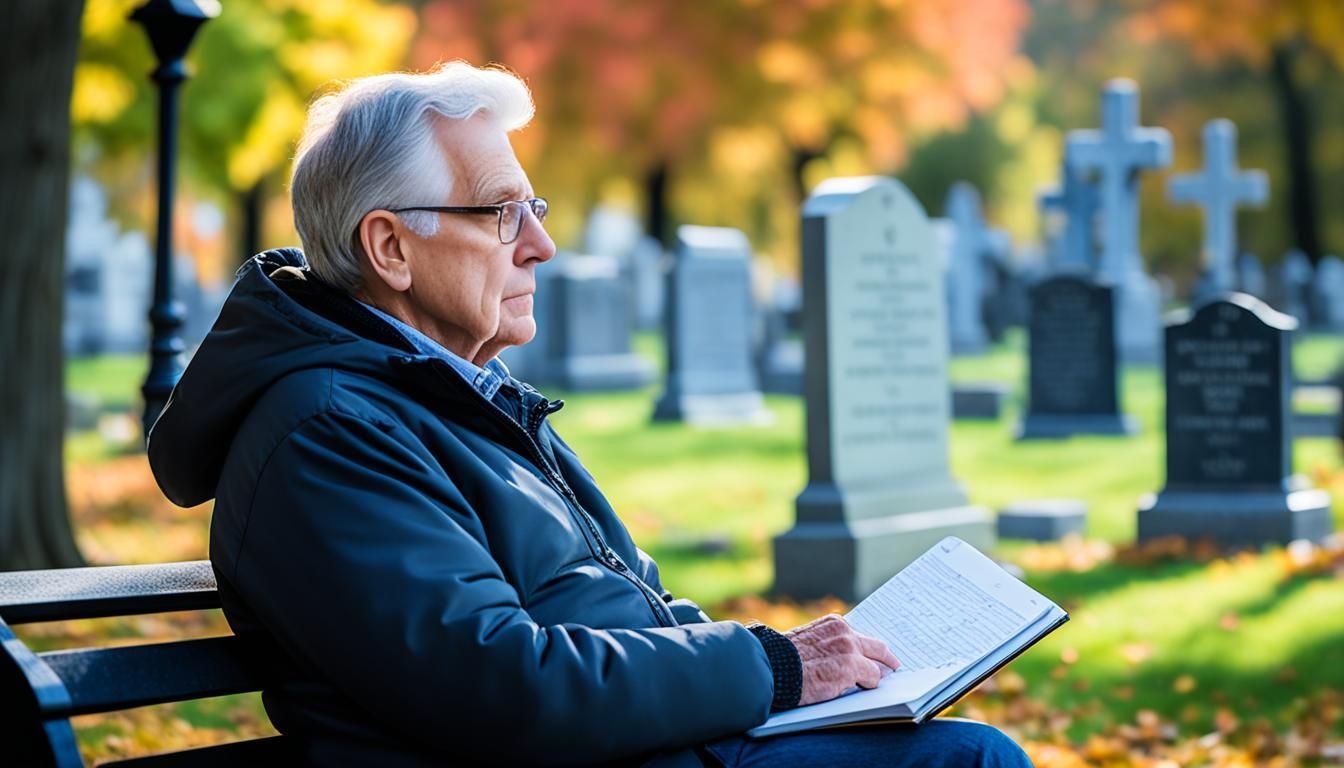3 Things Veterans Must Know for End-of-Life Plans
3 Things Veterans Must Know for End-of-Life Plans
Veteran end of life planning honors their service uniquely. It ensures peace of mind for both veterans and their families. A well-planned estate eases grieving loved ones' burdens.
These plans are crucial. They protect a veteran's financial future and health care wishes. For veterans used to discipline, veteran estate planning provides control and preparedness over personal matters.
Having the right end of life resources for veterans helps organize a dignified farewell. Documents like living trusts and powers of attorney are key in this planning phase.
Advance directives and living wills ensure a veteran's wishes are clear and will be followed. This thoughtfulness is a lasting act of kindness for family members. It's a powerful way to offer assurance and relief during tough times.
Key Takeaways
- Advance directives and wills solidify a veteran's healthcare and financial wishes, preventing future uncertainties.
- Awareness of and access to veteran end of life resources can alleviate emotional stress for families during difficult times.
- Proper estate planning ensures that a veteran's legacy is honored and their assets are distributed according to their wishes.
- Preparing legally binding documents is a vital step in end of life preparations for veterans, offering clarity and comfort.
- The discipline brought by military service translates into organizing end-of-life affairs, promoting order and peace of mind.
Understanding Your Veteran Burial Benefits
Planning a veteran's funeral involves learning about burial benefits and what's offered at VA national cemeteries . This knowledge can lessen the stress of arranging end-of-life affairs. These benefits honor service members' legacies while easing financial burdens for families.
Comprehensive Coverage with VA National Cemeteries
VA national cemeteries honor veterans by providing full services. They cover opening and closing graves, ongoing care, grave liners, and headstones or markers from the government. Whether choosing burial or cremation, these honorable memorials are available.
Eligibility and Preparations for Burial Benefits
Both veterans and, under certain conditions, their dependents can be buried in VA national cemeteries . Getting things ready ahead of time, like organizing the DD214, life insurance, and pre-need burial letters, helps ease the load during tough times.
Options Beyond Traditional Burial
VA accommodates preferences for cremation and sea burials, letting veterans pick what fits their values and wishes best. By planning these ahead, veterans can make their end-of-life services more personal, truly reflecting their own story.
| Service | Description | Provided By |
|---|---|---|
| Perpetual care | Continuous maintenance of burial sites | VA National Cemeteries |
| Headstones | Government provided markers to honor veterans | Federal Authorities |
| Burial Flags | U.S. flags draped over caskets as a mark of respect | Department of Veterans Affairs |
| Military Honors | Ceremonial tribute to acknowledge service | U.S. Military |
3 Things Veterans Need to Know about End of Life Arrangements
For veterans, understanding end-of-life plans is key. These plans help ensure peace for oneself and security for the family. They include VA life insurance, which provides significant financial support after passing. It also involves advance care planning, where veterans can outline their future healthcare wishes and pick a trusted healthcare proxy.
Survivor benefits are a big part of these plans. This includes Dependency and Indemnity Compensation (DIC) and Survivors Pension. Both offer financial backup for the survivors. It's important to keep documents well-organized and communicate their location. This makes accessing these benefits easier when needed.
Here's a closer look at two important benefits: Dependency and Indemnity Compensation and Survivors Pension. We'll go over who can get them and what they offer.
| Benefit Type | Eligibility Criteria | Key Benefits |
|---|---|---|
| Dependency and Indemnity Compensation (DIC) | Available to survivors of service members who died in the line of duty or due to service-related injuries or diseases. | Provides a monthly payment to eligible survivors and dependants. |
| Survivors Pension | Available to low-income, unmarried surviving spouses and dependent children of deceased war-time veterans. | Offers financial support to ensure that basic needs are met, calculated based on yearly family income. |
Looking into advance care planning and securing VA life insurance are vital steps. They align with setting your healthcare wishes and making sure dependants are financially supported. Veterans should explore these options fully, for smoother transitions and strong financial backing for their families.
Conclusion
Veterans have special challenges when planning for the end of life. It's about honoring their service with dignity and foresight. They need to take action early to make sure everything is in order. This includes using a detailed plan for their estate to keep their legacy safe. They should also make their health care wishes known ahead of time.
The U.S. Department of Veterans Affairs (VA) is a key support for veterans. It provides helpful end-of-life resources. With these resources, veterans can sort out their plans more easily. The VA helps veterans and their families even after service, with benefits that respect their sacrifices.
Groups like Edwards Funeral Service also offer much-needed help. They understand what veterans and their families go through. It's not just about the steps to take but also about keeping the spirit of teamwork and community alive. When veterans use VA benefits and such supportive services, they build a strong plan for the end. This plan honors their courage and keeps their memory alive for future generations.
FAQ
What are the essential aspects of veteran end-of-life planning?
Three key things are important for veteran end-of-life planning. First, comprehensive estate planning helps manage assets and make health care decisions. Second, veterans need to know about end-of-life resources from the VA and other groups. Lastly, it's crucial to talk about future care preferences and choose a health care proxy.
What veteran burial benefits are available and who is eligible?
Veterans get several burial benefits, like being buried in VA national cemeteries. These services include opening and closing the grave, care forever, and a headstone. These benefits are mainly for those honorably discharged and, in some cases, their families. Veterans can also arrange eligibility ahead of time for peace of mind.
How can veterans prepare for end-of-life arrangements?
Veterans should keep important papers like life insurance, a DD214, and a pre-need burial letter ready. It's also important to plan their health care wishes and choose someone to make decisions for them.
Can veterans choose options beyond traditional burials, such as cremation or burial at sea?
Yes, the VA supports various legal burial options, including cremation and sea burials. Veterans can still get benefits like a burial flag and military honors. They can also plan these services in advance to match their personal wishes.
What should veterans know about VA life insurance and survivor benefits?
Veterans should know about VA life insurance options, like VALife and VGLI, offering family financial support. They should also learn about survivor benefits . These include Dependency and Indemnity Compensation (DIC), Survivors Pension , and accrued benefits.
How can veterans ensure their legacy is honored after they pass away?
Veterans can honor their legacy by planning their end-of-life well, focusing on estate planning. They should choose VA burial benefits that recognize their service. Using services for online obituaries lets loved ones leave tributes with flowers and cards.
Are there services that help veterans with funeral planning and coping with loss?
Yes, some organizations specialize in helping veterans plan funerals and deal with grief. They offer memorials for the deceased with online obituaries, flowers, and cards.










